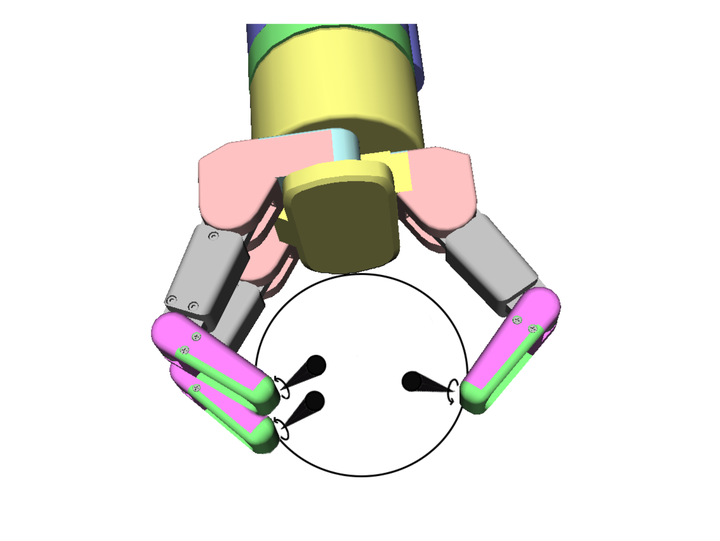Robotic Grasp Optimization from Contact Force Analysis

Abstract
This thesis addresses the problem of robotic grasp optimization. Due to uncertainty both on the robot kinematics, control and perception, it is very hard to analytically compute good grasps and execute them successfully. Our approach is based on searching for the best grasp configurations by iteratively optimizing a suitable grasp criterion. This approach may be compared to human learning stages where infants learn by trial and error what are the best grasping strategies. Initial grasps are often unsuccessful, but after a few trials the system learns to adapt to the uncertainties in the environment.
The thesis is composed by two main parts. On the first part we study the problem of grasp quality assessment. This is an essential ability both in off-line planning of grasps for robotic manipulation as in evaluating on-line executed grasps. Until now existing metrics rely on force-closure tests that are limited in scope. We propose a grasp quality metric that provides coherent performance criteria even for non-force-Closure grasps. It is based in two improvements with respect to existing metrics (i) a surface contact model, providing smoothness properties, and (ii) a bimodal wrench space analysis that provides continuity in the transition from non-force-closure to force-closure grasps. It is experimentally demonstrated, in a series of simulations, that the developed metric outperforms existing ones. We also show empirically that optimal points are invariant to the choice of reference frame, which allows its application on-line in non-model based approaches. On the second part of the thesis we study the problem of efficiently searching for the best grasp. Naive optimization of the grasp quality metric (e.g. uniform sampling) becomes intractable very quickly as the search space parameters grow. To address this problem we apply recent methods on Bayesian Optimization to obtain good approximations to global optima in a reduced number of trials. Gaussian Processes are used to encode our knowledge and uncertainty of the grasp quality metric as new trials are performed. Then, new samples are planned by searching in the Gaussian Process for points with favorable expected improvement. This last search is performed using recent Global Optimization methods.
We present results both in simulation and on a real robotic platform in the context of the HANDLE project. Results show clear benefits of our approach both in what respects the ability of the grasp quality assessment metric to represent enlarged parts of the search space and in what respects the vability of Bayesian Optimization to reduce the number of trials needed to find the optimal grasps.